Interview – Sky’s Position on Separating BT from its UK Telecoms Network
In our final ISP interview of the year we’ve been able to hit up Sky’s (Sky Broadband) Chief Economist, Alan Sewell, to examine the operator’s often outspoken position on separating BT from control of their national UK phone and broadband network and what it might mean for consumers.
The national telecoms regulator (Ofcom) is currently conducting a Strategic Review that has the arduous task of deciding whether or not BT should be separated from control of their Openreach division.
Advertisement
At the outset Ofcom proposed four options: 1) Retain the current model (the regulator has already largely excluded this), 2) Strengthen the current model by applying new rules to BT, 3) Separate Openreach from BT or 4) Deregulate and promote competition between networks.
Sky, flanked by Vodafone and TalkTalk, has been at the forefront of calls for Ofcom to split BT, although they’ve also been soft on details when it comes to answering the difficult question of what comes next. The consumer benefits would surely be easier to sell if we could first see some real investment pledges and service aims, but so far a cohesive plan has not emerged.
Meanwhile BT hints that any attempt to split their business would tie the process up in legal battles. Questions also remain over how BT’s debt / pension pile might be apportioned in the event of a split, as well as the impact on consumer prices from all of the related changes (better services cost more money) and what kind of market model might be adopted in its place.
In pursuit of answers we’ve been able to engage with Alan Sewell, Sky’s Chief Economist. According to Sewell, separating Openreach would help to focus investment towards making “Gigabit fibre broadband [FTTP/H] widely available to homes“, although he admits that this may not reach 100% of premises.
Advertisement
Sewell further believes that such a split could be conducted quickly because the “hard work” – functional separation – is already largely done, with Openreach “having separate management, its own accounts and payroll,” although this may be a simplification of the wider challenges at hand.
Sky certainly stands to lose very little in calling for a completely separate Openreach, after all BT are now their arch rival in the Pay TV space and as such any pain they can inflict is likely to hurt the national incumbent far more than themselves. But will the grass really end up being greener for consumers? We attempted to find out.
The Interview
1. Sky has previously hinted that it would ideally like the United Kingdom to deliver a widely available gigabit (1Gbps+) capable broadband network, such as through pure fibre optic FTTH/P technology like the experimental deployment that you’re involved with in York.
However your present viewpoint seems to be that the current industry structure, which is controlled through BT’s national Openreach network, will not deliver the radical step change that would make the UK a future world leader.
Advertisement
By comparison BT prefers to push the hybrid-fibre and copper (FTTC, G.fast etc.) approach, which delivers far slower and less reliable speeds, but is also significantly cheaper and more affordable / faster to deploy than FTTH/P. Some reports have suggested that FTTH/P could take over a decade to deliver and cost upwards of £20bn.
Assuming Openreach was to be split from BT’s control then does Sky’s aspiration foresee FTTH/P networks reaching 100% of UK premises and over what timescale?
Sky’s Answer:
It is worth outlining in detail our view of the current situation.
We believe that for the UK to compete with countries at the top the global connectivity table, we need to aim high. That means focusing on investing to make Gigabit fibre broadband widely available to homes, schools and businesses. This is what our competitors are doing, from Sweden to Singapore.
But the current market structure has allowed ambitions to remain modest. Openreach’s total capital expenditure has been broadly flat for many years, while the plans BT have shared for Openreach such as ‘G.Fast’ still rely on sweating its asset, the old copper network. There’s no ambition to explore or roll-out FTTP at scale – that’s why the UK has less than 1% FTTP penetration, and doesn’t even appear on Europe’s FTTP league table.
We believe that separating Openreach would make investment in FTTP networks covering a substantial part of the UK far more likely. In part, the ability to compete to deliver Gigabit services to BT Consumer would create the scope for other operators to invest – operators like Gigaclear, Hyperoptic and City Fibre, who are already delivering fibre networks in the UK today. Such competition is likely to be a key catalyst for investment by Openreach itself.
It is improbable that FTTH/P networks will reach 100% of UK premises. For example, in New Zealand their current target is 80% of premises by 2022, with the remaining premises served by other high-speed broadband technologies. We believe this is the sort of outcome the UK should be aspiring to.
2. Following on from above. Sky has previously criticised BT for “under-investment” in their Openreach division. As an independent company some have suggested that Openreach may still struggle to afford the investment required to deliver a national (FTTH/P) network, especially given all of its other commitments.
Would Sky be willing to join with others in making a significant investment into Openreach in order to help carry such an ambition forward or do you perceive this funding as coming from other sources?
Sky’s Answer:
We don’t agree that an independent Openreach would struggle to fund investment in delivering FTTP. As a standalone FTSE 100 company, Openreach would be highly attractive to long-term investors. Its key focus would be on investing in the network, and delivering high-quality services to its users – no longer subject to all the other investment and management priorities of BT Group.
BT today is a portfolio of projects with very different risk characteristics. This makes it difficult for investors with very long-term perspectives – typical utility investors like pension funds and sovereign wealth funds – to invest. But an independent Openreach could attract these investors seeking stable, long-term returns.
A real benefit of structural separation would be an ability for an independent Openreach to negotiate with all its customers to help support major new investments. For instance, we have helped Astra, the satellite operator, fund the substantial cost of launching satellites, by entering into long-term capacity commitments – and even contributing to launch costs in return for lower capacity charges. It is very difficult for Openreach to enter into these types of agreements with its customers today.
In terms of Sky’s own capital, we have always shown ourselves willing to make major investments. However, our experience indicates that under the current market structure, where BT’s business is not contestable, it is difficult to make a good case for significant investment in fibre networks.
3. What kind of control and organisational structure should an independent Openreach adopt? Particularly in reference to the influence that ISPs like Sky and TalkTalk may wish to exert over its decision making, especially if they make an investment into the company.
Sky’s Answer:
It would be an independent company, listed on the Stock Exchange with a board of directors. A good example would be National Grid. An independent Openreach would mean the CEO doesn’t have to report to the Head of BT but like any other quoted company reports directly to the Board and shareholders.
We are not proposing any of its customers have stakes in the company. It should respond to the needs of its users like any business.
Mark is a professional technology writer, IT consultant and computer engineer from Dorset (England), he also founded ISPreview in 1999 and enjoys analysing the latest telecoms and broadband developments. Find me on X (Twitter), Mastodon, Facebook, BlueSky, Threads.net and Linkedin.
« UPDATE3 Broadband Satellite Subsidy to Help 300000 Rural UK Premises

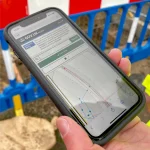

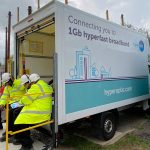

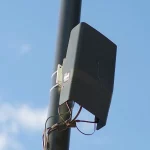
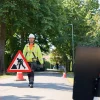

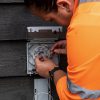








































Comments are closed